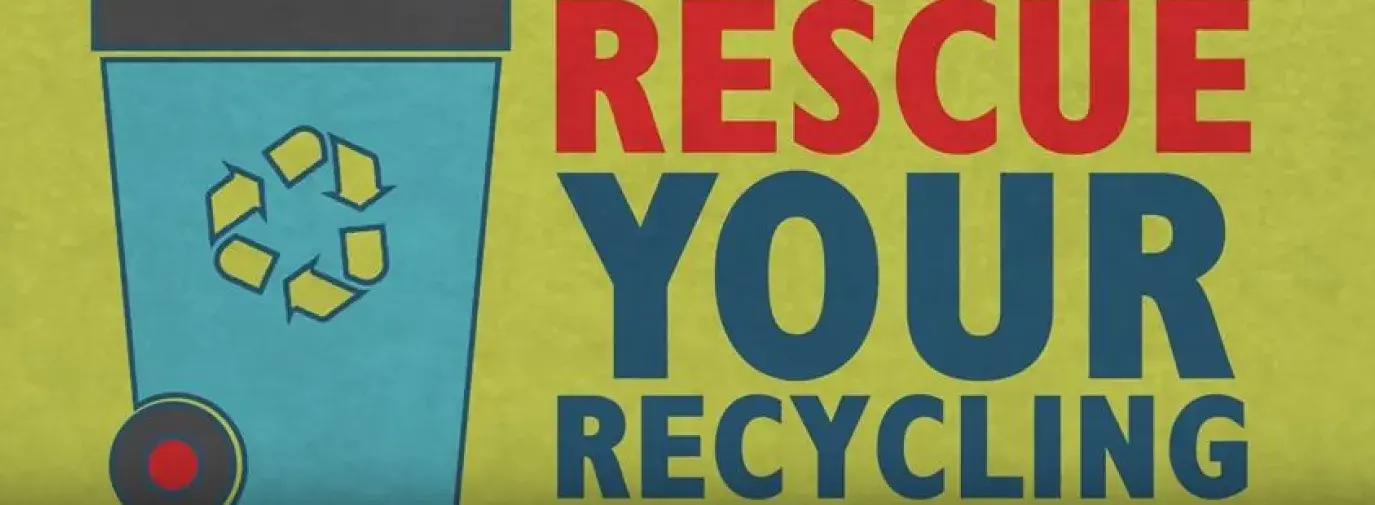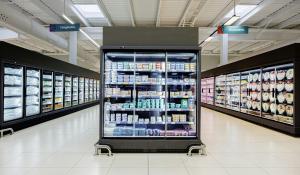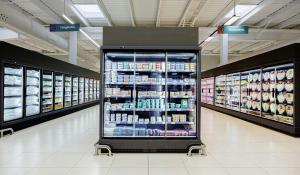
Single-stream recycling—or allowing households to dump all types of recyclables into one blue or green bin—has increased US recycling rates by 30 percent. It has also caused recycling contamination to skyrocket. Putting the wrong items or dirty items into your bin can ruin entire batches of recyclables, meaning they’ll all end up landfilled or incinerated instead.
Use these tips to ensure more of your bin items reach actual recyclers. Read below or watch the video version:
Video is a co-production of Gringo Starr Productions and Green America.
Glass
- Never put broken glass into your recycling bin. It could harm workers, who hand-sort recyclables. It could also get caught in and damage machinery or spoil bales of plastic or paper recyclables.
- Pyrex, china, ceramic, and porcelain are not recyclable, so keep them out of your bin.
Metal
- Metal caps from containers may or may not be accepted for recycling at your facility. Check with your waste hauler.
- Never put jagged pieces of scrap metal into your bin. It could cut workers who hand-sort recyclables, and it could also get caught in and damage machinery.
Paper
- Paper can easily be contaminated by food and liquid residues. To keep your paper clean and dry, collect it in paper sacks, staple the sacks shut, and write “PAPER” on them in marker or pen.
- Don’t include shredded paper unless your local waste-management company says it’s okay. Paper recycling facilities often can’t recycle super-short paper fibers—like the small, confetti pieces that come out of your shredder. These pieces are also prone to flying around sorting facilities, where they can contaminate other recycling batches.
- Go ahead and shred what you need to to protect your privacy, but then compost it or use it for packaging cushion material.
- If your paper has oil or food residue—think pizza boxes or popcorn bags—it’s a contamination hazard. Do not recycle! These can be composted if there are no plastic coating or parts.
- If your paper has plastic coating on it, as with frozen food containers or microwave meal boxes, it’s also a contamination hazard and should be landfilled. Do not compost, as plastic won’t break down in the environment.
- Don’t include coated receipt paper. It’s not recyclable and is a contamination hazard. It’s also usually covered in chemicals like bisphenol-A (BPA), so it shouldn’t be composted.
Plastic
- Don’t squish your plastic containers! Flattened containers can be mistakenly sent with paper items by automatic sorting machines, causing contamination.
- Find out what number plastics your waste management company accepts, and ONLY throw those plastics in the bin. Don’t “wish-cycle” the other numbers in the hopes that they’ll magically be recycled.
- If your community doesn’t accept #5 plastics, for example, not only will that #5 butter container not be recycled, it may also contaminate entire bales of perfectly recyclable #1 and #2 plastics your community accepts.
- Remove plastic lids and caps from containers and throw them in the trash. They are often #5 plastic and not accepted at most facilities.
- Don’t include plastic shopping bags or put your recyclables in plastic trash bags. These environmental menaces are also a big problem for recycling facilities. Most communities do not accept plastic bags for recycling, so they’ll just be hand-sorted out—which wastes workers’ time—and landfilled. Plus, just like you often see them flying across the landscape, they tend to fly around inside recycling facilities, where they may get tangled in equipment, or land in and contaminate items your community would normally recycle.
General Tips
- Wash all food and liquid residue from containers and let them dry before putting them in a single-stream bin, to avoid contaminating other items.
- Though diapers are made from plastic and paper, two commonly recyclable materials, their, erm, contents once they’re used are considered hazardous waste. Also, remember, workers are hand-sorting these items—how would you like to hand-sort a dirty diaper? Keep your dirty diapers out of the recycling bin (and switch to cloth if you can!).
- Recycling practices vary across the country, so be sure to follow all local instructions about recycling.
The Other R's
The best thing to do even before you recycle is to embrace a mindset of elegant simplicity—which means embrace the other “R’s” before you even get to “recycling”.
Reduce:
Before you buy something, ask yourself if you really need the item. Could you borrow it or rent it? Could you make do with something you already own?
Reuse:
Before you throw something in the trash or recycling bin, see if you can repurpose it, refurbish it, or give it to someone else who can use it.
Refuse:
Not one of the three traditional “R’s,” but refusing to buy what you don’t need can go a long way toward shrinking your personal impact on the landfill, the recycling center, and the planet.
Rot:
Can you compost it? Always compost if you can, rather than throwing organic waste into the landfill. Read our tips for picking the right composter. If you live in a smaller space, try worm composting.







